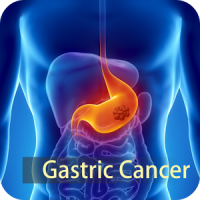- Home
- Editorial
- News
- Practice Guidelines
- Anesthesiology Guidelines
- Cancer Guidelines
- Cardiac Sciences Guidelines
- Critical Care Guidelines
- Dentistry Guidelines
- Dermatology Guidelines
- Diabetes and Endo Guidelines
- Diagnostics Guidelines
- ENT Guidelines
- Featured Practice Guidelines
- Gastroenterology Guidelines
- Geriatrics Guidelines
- Medicine Guidelines
- Nephrology Guidelines
- Neurosciences Guidelines
- Obs and Gynae Guidelines
- Ophthalmology Guidelines
- Orthopaedics Guidelines
- Paediatrics Guidelines
- Psychiatry Guidelines
- Pulmonology Guidelines
- Radiology Guidelines
- Surgery Guidelines
- Urology Guidelines
H. pylori eradication helps reduce risk of de novo gastric cancer

KOREA: A bacteria usually found in the stomach -- Helicobacter pylori -- is a known risk factor for the development of gastric cancer. Still, there have been controversies on the role of H. pylori eradication in the prevention of gastric cancer. Now, results from a retrospective cohort data from Korea has confirmed that the successful eradication of H pylori does help in the reduction of de novo gastric cancer.
The study, published in the journal Gastrointestinal Endoscopy, further found that low concentrations of HDL (high-density lipoprotein) increases the risk.
Su Youn Nam, Kyungpook National University Hospital, Buk-gu, Daegu, Korea, and colleagues set out to find the role of H pylori eradication and HDL concentration on the development of gastric cancer.
To examine the association, the researchers evaluated de novo gastric cancer risk in over 10,000 healthy subjects in Korea who underwent endoscopy and H pylori test, from 2003 to 2011 and follow-up endoscopy and H pylori until 2013. H pylori infection was detected using rapid urease test or histologic test. H pylori eradication group was defined as successful eradication. H pylori persistent group was defined as non-eradication or eradication failure. The risk of cancer was measured with a hazard ratio (HR) and 95% confidence interval (CI).
Also Read: How Helicobacter pylori causes gastric cancer
They found that:
- 31 gastric cancers were detected during a median follow-up of 5.5 years.
- De novo gastric cancer developed in 21 of 3508 subjects (0.6%) in the non-eradication group, 4 of 2050 persons (0.2%) in successful eradication group, and 6 of 4770 participants (0.13%) in absence of H pylori group.
- In the adjusted analysis, pylori eradication decreased de novo gastric cancer risk compared with the persistent group.
- The risk of de novo gastric cancer in the absence of H pylori was also much lower compared with the persistent group.
- Low serum HDL increased the risk of de novo gastric cancer.
Also Read: Potential gastric cancer biomarker which could help in early diagnosis identified

Disclaimer: This site is primarily intended for healthcare professionals. Any content/information on this website does not replace the advice of medical and/or health professionals and should not be construed as medical/diagnostic advice/endorsement or prescription. Use of this site is subject to our terms of use, privacy policy, advertisement policy. © 2020 Minerva Medical Treatment Pvt Ltd